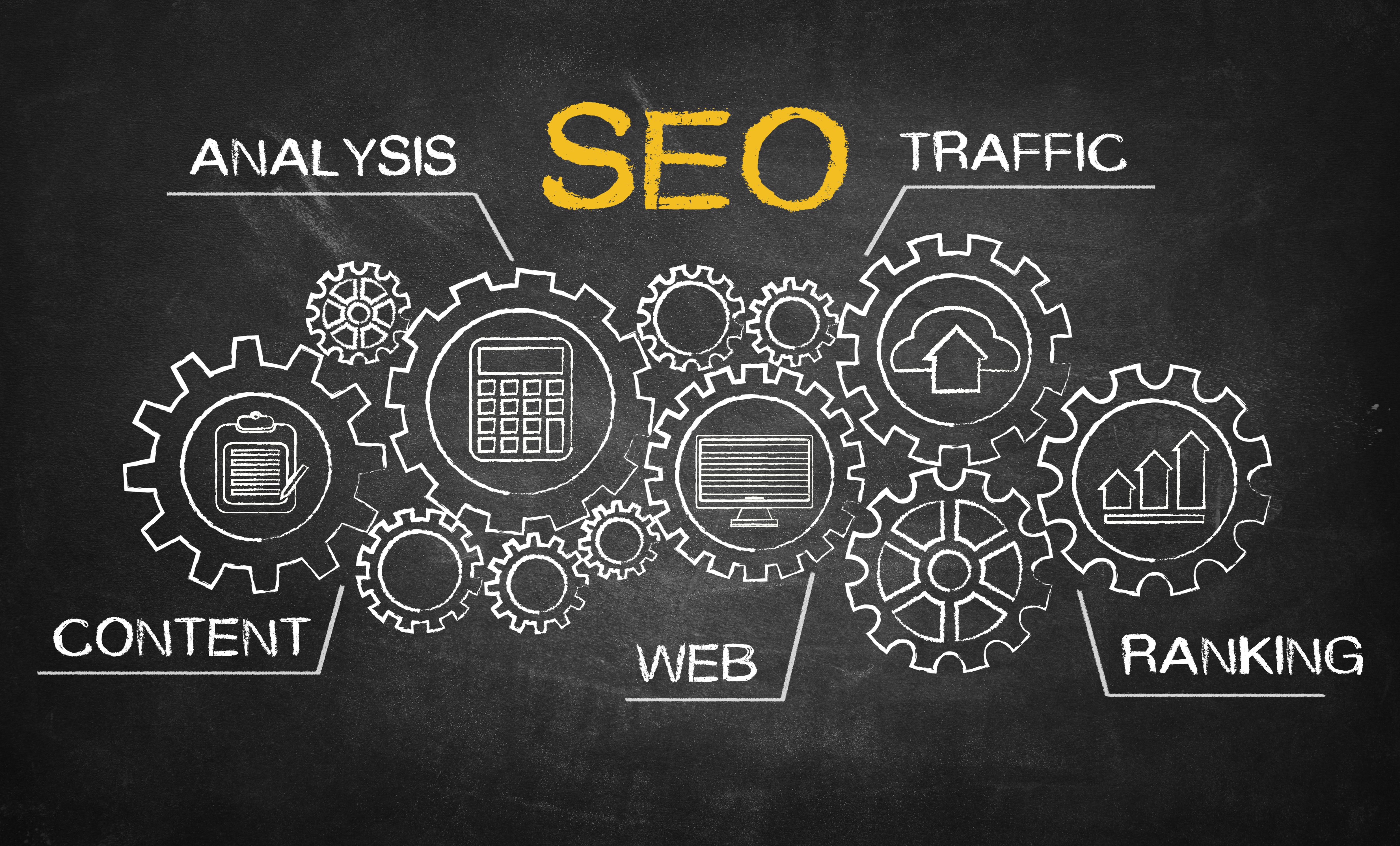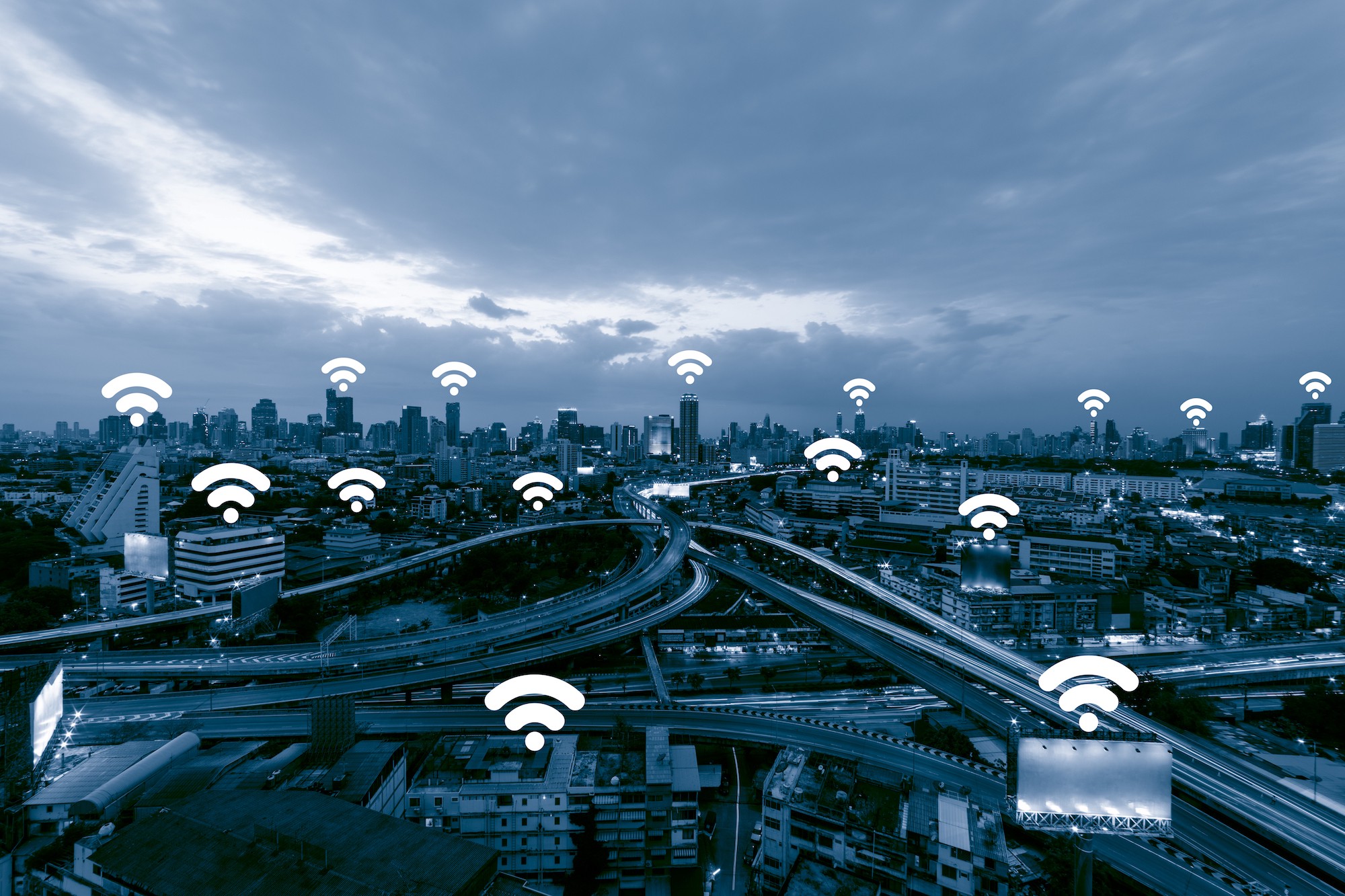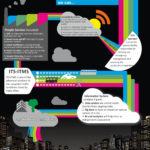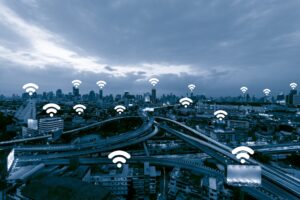
12 April, 2021Uncategorized
While urban planners have been talking about smart cities for some time, the reality hasn’t fully arrived just yet. Autonomous vehicles are still years away from becoming ubiquitous sights on the highway and IoT devices are only just beginning to take their place in people’s homes. Data centers still have an important role to play in this transformation, however. Far from the simple storage facilities of the past, today’s data centers have the potential to become a dynamic change agent within these smart city networks.
1- Not All Cities Are the Same
There is a tendency to talk about smart cities as a singular concept, giving the impression that the network-enabled city is a standardized thing that looks the same everywhere. But each city is unique. The suburban sprawl of Jacksonville, for instance, will need a different network solution than the compact urban core of Boston. For some cities, a single hyperscale data center might be sufficient to serve as the hub for a smart city network, but the power infrastructure may not be able to support it. And in some places, geography and climate may have a big impact on the types of data centers that could be put into use. Data centers are a vital component of intelligent cities, but they need to be catered to the realities of the market. Smaller cities will typically benefit from more edge data centers, for instance, that allow companies to better reach users with minimal latency. As IoT devices like autonomous vehicles proliferate, however, edge computing data centers will need to be flexible enough to accommodate changing usage demands, perhaps even incorporating a series of micro data centers to augment existing services.
2- Efficiency Matters
Fully integrated smart cities will put tremendous strain on existing data infrastructure. From all the data being collected on a regular basis to the intense computing demands of AI-driven machine learning analytics, the sheer amount of traffic and processing workload will force networks to optimize or collapse under their own weight. Edge computing will solve many of these problems, allowing IoT devices to take on much of the data storage and processing burden, but data centers will still need to adapt to deliver the performance intelligent cities require.
For one thing, smart city data centers will consume a lot of power from existing municipal infrastructures. While some of these power problems can be solved by improving server and storage efficiency, many facilities are already experimenting with cleaner alternative energy sources rather than doubling down on inefficient and pollutant-heavy factories. New advancements in liquid cooling and predictive analytics will also help data centers to consume power more efficiently, reducing their overall infrastructure footprint and improving their performance.
3- Access is Everything
The interconnected smart city network is supposed to make everything easier. City inhabitants will expect a seamless experience throughout their day as they transition their multiple devices from their homes, to the work-time commute, to the workplace, and back again. While IoT devices and 5G networks can smooth over the gaps by gathering and processing data locally, smart city data centers will function as critical nodes in a broader network that facilitates a wide variety of ongoing tasks. When autonomous vehicles are crisscrossing the city and interacting with a multitude of devices operating on every street, service outages aren’t just an inconvenience; they could potentially be dangerous.
High tier data centers with excellent uptime reliability will be crucial to making the smart city function effectively. Network access will need to be reliable, backed up by multiple redundancies and blended across multiple service providers to ensure easy and quick availability. As carrier-neutral providers, smart city data centers can provide the options and flexibility businesses, individuals, and municipalities need to build a robust network infrastructure that makes smart cities possible.
4- More Connections Mean More Vulnerabilities
Not everyone is excited about the prospect of the smart city. With IoT devices spreading and key city infrastructure being connected to broader networks thanks to edge computing, cybersecurity experts worry that this expanded attack surface will make intelligent cities an attractive target for hackers. For a preview of their worst-case fears involving ransomware, look no further than the March 2018 attack on Atlanta, which crippled many of the city’s systems and made it impossible for residents to do simple tasks like pay parking tickets or utility bills. There have been worse cyberattacks in other parts of the world, from the December 2015 attack that crippled western Ukraine’s electrical grid and left several cities without power to the October 2017 DDoS attack that led to train delays throughout Sweden.
Smart city data centers can’t afford to ignore these dangers and must work to make themselves a bulwark against cyber threats of all kinds. For thousands of years, cities were protected by walls that held hostile raiders and armies at bay; today’s data centers must perform the same role in a digital space—erecting the defenses that will safeguard smart city networks to keep critical infrastructure and vital devices up and running. By working with public and private stakeholders in these cities, data centers must develop the cybersecurity solutions of the future and implement them today.
Launch Your Smart City Solutions with smartcitygroup
Smart cities present many exciting possibilities for urban planners and city residents, several of which are still years away from becoming a reality. Whatever form the smart cities of the future take, however, data centers will undoubtedly play a vital role in their success. By adapting to the needs of these dynamic network environments, data centers can take the lead in building the cities of tomorrow.
With colocation data centers located in key emerging markets throughout the US, smartcitygroup is well-positioned to help municipalities and contractors roll out the next generation of smart city technology. Our facilities are engineered for perfection and backed by 100% uptime SLAs to ensure unbeatable reliability. With extensive connectivity options that provide a direct on-ramp to leading cloud providers, smartcitygroup data centers can empower a diverse range of smart city services to meet the needs of growing urban centers.
Talk to one of our collocation experts today to start working on a customized colocation solution that meets your unique technology needs.






